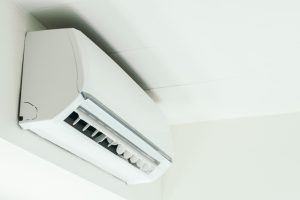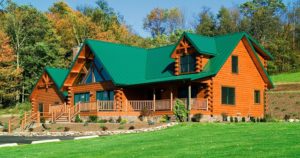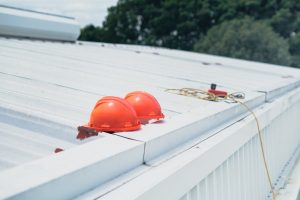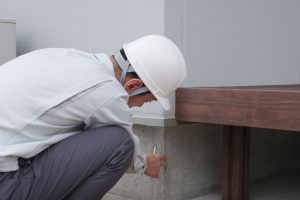How Weather Affects your Roof in North Dallas Fort Worth

If you live in North Dallas Fort Worth, then you know that we experience a wide range of weather conditions. From hot summers to cold winters, our area experiences it all.
And while most roofs are designed to withstand all sorts of weather, there are some things that you can do to help protect your roof from damage. Extreme weather conditions can cause damage to your roof, which can lead to costly repairs.
In this blog post, we will discuss the effects that different types of weather have on roofs in our area. We will also provide some tips on how to protect your roof from damage during extreme weather events.
Here are different weather conditions that take a toll on your roofing system:
Sunlight and its ultraviolet rays
Roofs are generally exposed to the direct rays of our sun without any shade or filter, which can cause them to dry out over time. This continuous exposure to heat and UV radiation might contribute to the deterioration of your roof.
If left unchecked, it may lead to shrinkage and weaken the wooden structures on your roof. In the worst-case scenario, it might even lead to cracking. Applying roof coatings to your roofing system is one such option to avoid the harmful effects of UV rays.
Summer’s thermal shock
Thermal shock occurs when the temperature rises above average during the day but then drops precipitously at night.
Rapid temperature fluctuations might cause the membranes to expand and compress within a matter of minutes. It can lead to structural brokenness and warping, especially for metals.
Rainy conditions
Rainfall is the most frequent element in North Dallas, and it’s especially prevalent during the winter. Now, how this weather affects your roof is something tied in with gravity.
The relentless pounding of raindrops on your roof can eventually cause stress and possible wearing out. It’s critical to ensure that water drains off properly from flat roofs, particularly if they’re under a high-risk condition.
When it comes to repairing the roof, you must make sure there are no water puddles on the surfaces and that gutters are free of debris. It is also critical to ensure that the downpipes flow towards the drains without leaks or spills.
Strong winds
Strong, high winds may cause shingles on your roof to loosen or even fracture. Leaving an area exposed to the elements can lead to new difficulties. You can prevent bigger issues from developing by performing a thorough roof inspection right after a severe windstorm.
Replacement of a damaged or lost shingle is a quick and inexpensive remedy before any significant damage has occurred.
Snow accumulation
Snow can pile up on your roof during winter and can take a toll on your roofing system through its massive weight. This is how such weather affects your roof. Though, unlike rainwater, snow drains away just as readily and may therefore cause a roof to be too heavy. The most frequent repair task is to let it melt away.
However, if you need to clear off the snow before shoveling it away, consider using a snow shovel. If improperly done, though, it might cause your roof tiles to come loose or totally remove them.
Hail, oh hail
Hail is also one of the visiting conditions in Dallas which can dictate some serious trouble. Hail can cause damage to metal or ceramic roofing tiles, stucco roofs, and even wooden or asphalt shingles when it strikes.
But based on experience, hail has higher chances of breaking your windows or causing damage to your siding, but if it affects your roof as well, you must have roofers repair the damage as soon as possible to avoid structural deterioration.
Roaring thunderstorms
Even if your shingles aren’t directly hit by lightning, you may have problems with them as a result of the electrical surge that can wipe them away. Lightning is uncommon to strike your roof, but if it does, limbs from trees could be chopped off and fall straight onto the top of the house, causing fractures or holes.
To prevent this, make an effort to keep large tree limbs away from your roof. Bad weather may even cause your shingles to lift or curl.
Unattended drainage system
This impact is a phenomenon concerning how weather affects your roof indirectly. For instance, if there is no suitable drainage system in place, the water might cause structural harm to the roof and perhaps even surface condensation, especially during very cold weather.
Roofing experts eliminate the potential of this problem by constructing an efficient system that can spare you some bucks in the long run.
Moss invasion due to water damage
When your roof is not maintained regularly, moisture may accumulate inside the roofing components over time. The high temperatures and increased water supply in the summer might help to promote moss and mold growth at an accelerated rate.
Because a roof’s longevity is directly related to the condition of its components, you must preserve it regularly to decrease the potential for more structural damage.
What can you do?
As you can see, there are a variety of weather conditions that can damage roofs. But by taking steps to protect your roof, you can help minimize the risk of damage. Here are some physical conditions that you can notice when doing an inspection:
- Aged
- Light through the roof
- Presence of water damage or leak
- You can see decaying or curled shingles
- Saggy ceiling
- Broken or missing granules and shingles
- Clogged gutter
- Presence of dark streaks
- After, sustaining wind or hail conditions, check to see a potential damage
If you can notice some of the above mentioned on your roof, immediately take precautionary measures. These are symptoms of how weather affects your roof.
In case you are unsure, or if you need assistance with repairs, contact a professional roofing contractor like the guys from Mighty Dog Roofing in North DFW. They will be able to help you choose the right protection for your home and provide repair services if needed. They can seal you an awesome deal, shoulder installation and/or repair, and take care of your sidings and gutter.
So, go plan everything and make the decision because a properly maintained roof above your head will always be of exact precision!






